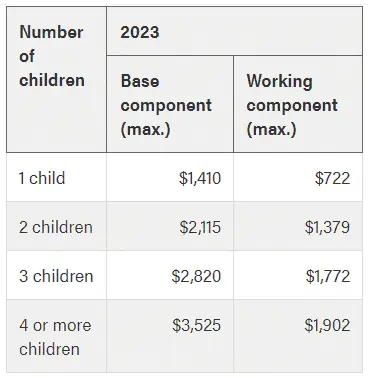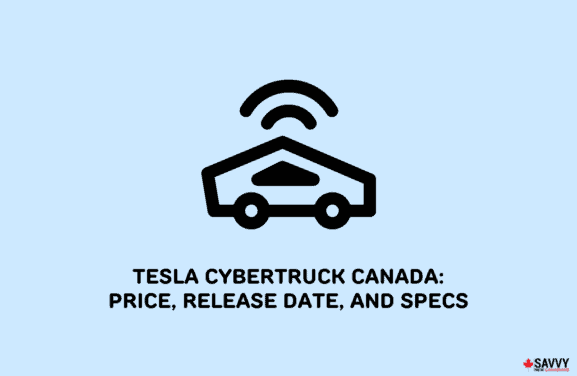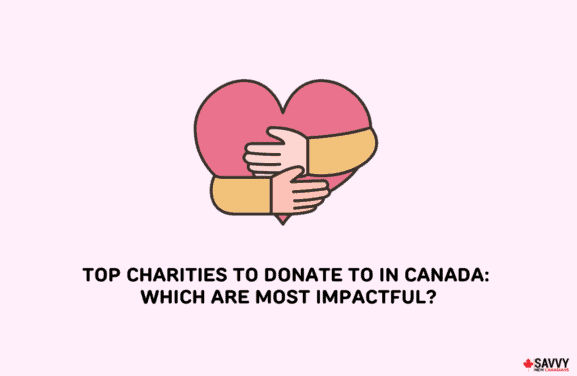Quick Answer
- Newcomers to Canada are eligible to receive benefits like GST/HST Credit, Climate Action Incentive Payment (CAIP), and Canada Child Benefit (CCB).
- To start receiving your benefits, file your income tax return for the previous year, even if you had no income.
- You can receive your benefits via direct deposit to your bank account or checks sent through the mail.
- Canadian provinces and territories also provide various benefits and tax credits to newcomers in Canada.
Are you a newcomer to Canada? If so, you will be glad to know that you are entitled to newcomers to Canada services from the government, even if you just arrived.
You only need to complete a few easy steps to ensure your eligibility, whether or not you are earning income.
Read on to learn more about the newcomer to Canada benefits and other services available to help you settle in.
Who is Considered a Newcomer to Canada?
Newcomers to Canada include these groups of people:
- Permanent residents – These are individuals permitted to stay in Canada after obtaining “approval-in-principle” from Immigration, Refugees and Citizenship Canada.
- Temporary residents – These include workers, students or individuals holding temporary resident permits.
- Refugees – They are also referred to as protected persons.
For the first year that you are a resident of Canada, the Canada Revenue Agency (CRA) considers you as a newcomer.
The day you arrive in Canada is when you establish residential ties in the country. Residential ties include a home you own or lease, a spouse or common-law partner, or dependents.
Once you have obtained sufficient residential ties, you become a resident of Canada for income tax purposes.
How to Receive Newcomer to Canada Benefits
To receive newcomer benefits, you must first acquire a social insurance number (SIN) and file your taxes in Canada, whether or not you have taxable income.
A SIN is a 9-digit number issued to you so you can receive government benefits and credits, work in Canada, and open bank accounts.
To apply for a SIN, follow the procedures described on the Government of Canada website.
Once you have acquired your SIN, apply for the benefit and credit you are eligible for. You can start receiving your benefits and credits even if you have not filed your first tax return.
If you have a spouse or common-law partner, one of you must be a resident of Canada for income tax purposes.
What Benefits Can Newcomers to Canada Receive?
Newcomers to Canada benefits include the following:
GST/HST Credit
The Goods and Services Tax/Harmonized Sales Tax (GST/HST) benefit is a tax-free quarterly payment that helps offset the taxes you pay on items you buy.
Apply for the GST/HST benefit if you are at least 19 years old or have a low or modest income.
Fill out the RC151 GST/HST Credit and Climate Action Incentive Payment Application for Individuals Who Become Residents of Canada. You can also visit a Service Canada location in your area to apply.
Climate Action Incentive Payment (CAIP)
The CAIP is a tax-free payment that helps recipients offset the cost of federal pollution pricing.
Available to residents of Alberta, Saskatchewan, Manitoba and Ontario, CAIP consists of a basic amount plus a supplement for residents of small and rural communities.
You can avail of CAIP if you are a resident of Canada for income tax purposes and a resident of an eligible CAIP province. Find out more about CAIP eligibility.
To apply for CAIP as a new resident of Canada, fill out and sign the form applicable to your circumstance and mail it to your tax centre (or visit a Service Canada branch to apply).
- If you have children, complete the following:
- Form RC66 (Canada Child Benefits Application)
- Form RC66SCH (Status in Canada and Income Information for the Canada Child Benefits Application)
- If you do not have children, complete Form RC151, GST/HST Credit and Climate Action Incentive Payment Application for Individuals Who Become Residents of Canada.
Canada Child Benefit (CCB)
The Canada Child Benefit is a tax-free monthly payment given to eligible families to help with the cost of raising children under 18 years old.
If you are responsible for caring for a child who lives with you, you may be qualified to receive the CCB and any other benefit for the child.
If applicable, you and your spouse or common-law partner must file your tax return to receive the child benefit.
To apply, fill out Form RC66, Canada Child Benefits Application. Depending on your immigration and residency status, you may need to complete Schedule RC66SCH (Status in Canada and Income Information).
Provincial and Territorial Newcomer to Canada Benefits
As a newcomer in Canada, there are several benefits and credits that you may be qualified for that are available in various provinces and territories.
Make sure you can receive the benefits directly into your account by signing up for direct deposit at a financial institution in Canada.
If you have no direct deposit account, you will receive your payments through checks sent through the mail.
Below are the newcomer benefits in various provinces and territories.
Alberta
Alberta Child and Family Benefit (ACFB)
Alberta Child and Family Benefit provides direct financial assistance to lower and middle-income families with children under 18.
You automatically qualify for ACFB when you file your annual tax return and become eligible for CCB.
ACFB consists of a base and a working component. For 2023, the ACFB maximum benefit amounts are:

The CRA administers the payments in four instalments (August, November, February, and May) and sends them via mail or direct deposit.
British Columbia
BC Family Benefit
The BC Family Benefit provides tax-free monthly payments to families with children under 18 years.
The benefit is administered by the CRA, which uses your information from the CCB to determine your eligibility for the BC Family Benefit.
The following are the monthly benefit amounts for July 2023 to June 2024:
- $145.83 for the first child;
- $41.66 for the first child in a single-parent family;
- $91.66 for the second child; and
- $75 for each additional child.
The benefit is combined with the CCB into one monthly payment.
BC Climate Action Tax Credit (BCCATC)
The BC Climate Action Tax Credit is a tax-free payment that low-income individuals and families receive to help offset the carbon taxes they pay.
The following are the credits BCCATC will provide from July 2023 to June 2024:
- $447 for an individual
- $223.50 for a spouse or common-law partner
- $111.50 per child ($223.50 for the first child in a single-parent family)
The maximum quarterly amounts are as follows:
- $111.75 for an individual
- $55.87 for a spouse or common-law partner (and first child in a single-parent family)
- $27.87 per child
The BCCATC payment is combined with the federal GST/HST credit quarterly payment.
New Brunswick
New Brunswick Child Tax Benefit (NBCTB)
The NBCTB is a non-taxable monthly amount provided to eligible families with children under 18 years old.
Families may be qualified to receive a monthly basic benefit of $20.83 for each child. The amount is lowered for an adjusted family net income exceeding $20,000.
The payment is combined with the CCB into one monthly payment.
New Brunswick Harmonized Sales Tax Credit (NBHSTC)
The NBHSTC is a tax-free amount provided to help families with low and modest incomes offset the increase in sales tax.
The maximum annual amounts for this benefit are:
- $300 for an individual
- $300 for a spouse or common-law partner
- $100 per child under 19 years of age ($300 for the first child in a single-parent family)
Newfoundland and Labrador
Newfoundland and Labrador Child Benefit
This tax-free benefit is paid monthly to low-income families to help them with the cost of raising children under 18 years old.
For July 2023 to June 2024, the following are the monthly amounts eligible families may be entitled to:
- $37.25 for the first child
- $39.50 for the second child
- $42.41 for the third child
- $45.58 for each additional child
Newfoundland and Labrador Income Supplement (NLIS)
The NL Income Supplement is a refundable tax credit given to low-income individuals, families and seniors.
No application is necessary for eligible individuals to receive the benefit. The basis for eligibility is your net income from the previous year.
The NLIS amounts for 2023 are as follows:
- For eligible individuals – Basic credit of $254; maximum credit of $520
- For a spouse – $69
- For eligible children – $231
To get the benefit, file your income tax return. Payments, administered by the CRA, are made in quarterly installments in January, April, July and October.
Newfoundland and Labrador Seniors’ Benefit
The NL Seniors’ Benefit is a refundable tax credit paid to seniors, whether single or as a couple.
If you are a senior, at least 64 years old, with an adjusted family net income of up to $29,402, you may be eligible to receive the maximum benefit of $1,516.
As your net income increases between $29,402 and $42,404, the benefit amount will be phased out at 11.66%.
Northwest Territories
Northwest Territories Child Benefit
The Northwest Territories Child Benefit is a non-taxable monthly payment given to eligible low- and middle-income families with children under 18 years old.
Families with an annual net income below $30,000 are eligible to receive the full child benefit. The following are the monthly amounts eligible families may be entitled to receive:
- Under the age of 6:
- 1 child – $67.91
- 2 children – $122.25
- 3 children – $166.41
- 4 children – $203.75
- For each additional child – $30.58
- Ages 6 to 17:
- 1 child – $54.33
- 2 children – $97.83
- 3 children – $133.08
- 4 children – $163.00
- For each additional child – $24.41
The payment is combined with the CCB into a single monthly payment.
Northwest Territories Cost of Living Offset (COLO)
The COLO is a tax-free benefit paid out to individuals and families to help offset the cost of the territorial carbon tax in the Northwest Territories.
There is no need to apply for the benefit since the CRA will determine your eligibility and make the payments to qualified families.
For July 2023 to June 2024, the annual payments for members of eligible families are:
- $441 for an individual
- $441 for a spouse or common-law partner
- $493 per child under the age of 18
The benefit is combined with the GST/HST credits paid quarterly in July, October, January and April.
Nova Scotia
Nova Scotia Child Benefit (NSCB)
The Nova Scotia Child Benefit is a tax-free monthly payment that helps qualified families with the cost of raising children under 18 years old.
The monthly benefit for July 2023 to June 2024 for each child under 18 years of age in your care is $127.08.
If your income is between $26,000 and $34,000, it may qualify you to get part of the child benefit.
Nova Scotia Affordable Living Tax Credit (NSALTC)
The NSALTC is a tax-free benefit that provides low- and modest-income individuals with additional income and helps them offset the increase in harmonized sales tax (HST).
For July 2023 to June 2024, the maximum annual credit for an individual or couple is $255.00 plus $60.00 for each child.
If your net income is over $30,000, the credit will be reduced by 5%. The payment is combined with the quarterly GST/HST credits.
Nunavut Child Benefit (NUCB)
The NUCB is a non-taxable monthly benefit paid to qualifying families with children below 18 years.
The monthly basic benefit for each child is $28.91. If your family has an earned income of over $3,943, you may also receive the following territorial workers’ supplement of up to:
- $24.08 per month for one child
- $30.66 per month for two or more children
Families with net incomes exceeding $21,999 may get part of the benefit. The benefit is combined with the CCB into one monthly payment.
Ontario
Ontario Trillium Benefit (OTB)
The Ontario Trillium Benefit (OTB) combines three credits: the Ontario Energy and Property Tax Credit, the Northern Ontario Energy Credit, and the Ontario Sales Tax Credit.
OTB payments, divided by 12 and issued every 10th of each month, are based on the previous year’s income tax and benefit return.
Ontario Child Benefit (OCB)
The Ontario Child Benefit (OCB) is a tax-free payment that helps provide for the children of low- to moderate-income families.
For July 2023 to June 2024, you may be eligible for $133.91 per month for each child under 18. A family net income that exceeds $24,542 may qualify them for a partial benefit.
OCB payments and Canada child benefits are provided monthly in a single payment.
Ontario Energy and Property Tax Credit (OEPTC)
The OEPTC is a provincial tax credit initiative that helps low- to moderate-income residents with their payments on property taxes and sales taxes on energy expenses.
It is composed of the energy and property tax components. Apply for this benefit if you are eligible for either component.
The maximum 2023 OEPTC amounts are as follows:
- $1,194 for non-seniors ($265 for the energy component plus $929 for the property tax component)
- $1,360 for seniors ($265 for the energy component plus $1,095 for the property tax component)
To apply for the 2023 OEPTC, file a 2022 income tax and benefit return.
Northern Ontario Energy Credit (NOEC)
The NOEC is a tax-free entitlement for low- to moderate-income residents in Northern Ontario to help with the higher home energy costs in the north.
Eligible residents can receive a maximum annual credit of $172 for single individuals (with no children) and $265 for couples and single parents.
The annual benefit is divided by 12 and paid out monthly. To apply for the 2023 NOEC, you must file a 2022 income tax and benefit return.
Ontario Sales Tax Credit (OSTC)
The Ontario sales tax credit (OSTC) is a tax-free payment that helps low- to moderate-income Ontario residents offset the sales tax they pay.
For July 2023 to June 2024, each adult and each child in a family can receive a maximum annual credit of $345.
There is no need to apply for the benefit as the CRA will use information from your return to determine your eligibility and will send you a notice if you are qualified to receive it.
Ontario Senior Homeowners’ Property Tax Grant (OSHPTG)
The OSHPTG helps low- to moderate-income seniors with the cost of their property taxes. Eligible seniors can receive up to $500 back on their property taxes.
Seniors can qualify for the grant by filing their personal income tax and benefit returns annually.
If you are a single, separated, divorced or widowed senior with an adjusted family net income of $35,000 or less for 2022, you can qualify for the $500 grant.
If you are married or living common-law and had an adjusted family net income of $45,000 or less for the previous year, it will make you eligible to receive the grant.
Prince Edward Island
Prince Edward Island Sales Tax Credit (PEISTC)
The PEISTC is a non-taxable payment to residents with low and modest incomes to help offset the sales tax increase.
The benefit amount is combined with the quarterly federal GST/HST credit payment..
Applying for the benefit is unnecessary since the CRA will establish your eligibility using the information on your return.
Quebec
Child Assistance Payments
Residents of Québec are required to file their application for Child Assistance Payments directly with Retraite Québec.
If you have any dependent children under 18, you may be eligible to receive the Family Allowance Payment.
The maximum benefit is $2,782 for each child plus $976 for a single-parent family.
If you have children aged 4 to 16, you may be qualified to receive the Supplement for the Purchase of School Supplies in the amount of $115.
Families with handicapped children may also receive the applicable benefits:
- Supplement for Handicapped Children – $2,616
- Supplement for Handicapped Children Requiring Exceptional Care – $8,796 for Tier 2 and $13,224 for Tier 1
To receive the benefit, both spouses (if applicable) must file a Québec income tax return each year, regardless if they have no income to report.
Saskatchewan
Saskatchewan Low-Income Tax Credit (SLITC)
The SLITC is a fully refundable, non-taxable benefit provided as assistance to low- and modest-income Saskatchewan residents.
To receive the payments, you must meet the income and family criteria and file an income tax return as a Saskatchewan resident.
The maximum benefits are as follows:
- Basic adult component and the spousal/equivalent component – $380 each
- Child component – $300 per family
- Families earning less than $35,902 – maximum annual benefit of $1,060
The benefit is paid out quarterly by the CRA with the federal GST credit. Applying for the SLITC is unnecessary because the CRA will determine your eligibility through your income tax return.
Yukon
Yukon Child Benefit (YCB)
The YCB is a non-taxable monthly payment that helps low- to modest-income families in Yukon with the cost of raising children below 18 years.
Eligible families may receive a monthly benefit of $73 for each child. Those who earn above $35,000 may get part of the benefit.
The benefit amount is combined with the CCB into one monthly payment.
Yukon Government Carbon Price Allowance Rebate – Individuals (YGCPRI)
This rebate is a non-taxable payment provided to individuals and families to help them offset the cost of the federal carbon pollution pricing levy.
Qualified recipients may be entitled to receive the annual payment of:
- $372 for an individual
- $372 for a spouse or common-law partner
- $372 per child under 19 years of age
The YGCPRI amount is paid together with the quarterly federal GST/HST credit payments.
Welcome To Canada Tax Benefit For International Students
Many have heard about the so-called welcome to Canada tax benefit for international students, believing that it is a type of payment the government gives to newcomers in the country.
The truth is, you can receive it only if you file an income tax return for the previous year, whether you have employment or not.
If you are a newcomer to Canada, you are eligible for certain benefits and credits. You are encouraged to claim these by filing a tax return for the previous year.
These benefits include the goods and services tax/harmonized sales tax (GST/HST) credit. If you are a resident of Ontario, you may also be qualified to receive the Trillium benefit.
The credits can range from around $200 to $700 a year, depending on where you live. You must first obtain a social insurance number (SIN) before filing anything.
New Canadian immigrants may also qualify for various government and unemployment benefits for new immigrants in Canada, including tax credits, social assistance, and employment insurance.
Many provinces and territories offer several benefits and credits that newcomers can qualify for. Learn about the different provincial and territorial programs here.
Related: Newcomer To Canada Financial Checklist.
FAQs
The welcome bonus for new immigrants to Canada refers to the tax benefits you receive, such as the GST/HST credits. You can receive your payments when you have successfully filed your income tax return for the previous year, regardless of whether or not you were working.
Canada is giving a one-time, tax-free $500 government top-up to low-income renters to help them with the rising housing costs. Canadians must be at least 15 years old, have paid rent in 2022 equal to at least 30% of their net income in 2021, and have an adjusted family net income of $25,000.
The 90% rule refers to a tax exemption rule regarding your worldwide income (income in Canada plus income in the previous country of residency). It states that if your Canadian income is more than 90% of your worldwide income, you enjoy tax exemption on the first $12,000 you earn. If it is less than 90%, your basic amount will be equivalent to the number of days you have stayed in Canada during the year.
Immigrants do pay taxes and file an income tax return yearly like other Canadians. If you moved to Canada in 2022 and became a permanent resident, it is crucial that you file your first income tax return with the Canada Revenue Agency (CRA). Doing so helps you apply for essential benefits, such as the GST/HST or child tax credit.
This post was sponsored by HSBC Canada; however, all views and opinions are mine.



